Follow+Star Public Account Number, don’t miss the wonderful content
Author | strongerHuang
WeChat Public Account | strongerHuang
1. Should I choose register development for STM32, or the Standard Peripheral Library?
2. Do you have the STM32L0 Standard Peripheral Library?
3. What are the differences between HAL and LL libraries?
Now, let’s discuss the four libraries for developing STM32:
-
-
Standard Peripheral Library
-
-
What is STM32Snippets?
STM32Snippets can be translated as “code snippets” or “trimming”; it is essentially what we commonly refer to as“register” development’s low-level driver code for STM32.
For example, the code snippet for configuring the ADC pin:
__INLINE void ConfigureGPIOforADC(void){ /* (1) Enable the peripheral clock of GPIOA, GPIOB and GPIOC */ /* (2) Select analog mode for PA1 */ /* (3) Select analog mode for PB1 */ /* (4) Select analog mode for PC0 */ RCC->AHBENR |= RCC_AHBENR_GPIOAEN | RCC_AHBENR_GPIOBEN | RCC_AHBENR_GPIOCEN; /* (1) */ GPIOA->MODER |= GPIO_MODER_MODER1; /* (2) */ GPIOB->MODER |= GPIO_MODER_MODER1; /* (3) */ GPIOC->MODER |= GPIO_MODER_MODER0; /* (4) */ }
STM32Snippets is a highly optimized collection of example codes, using direct register access compliant with CMSIS to reduce code overhead, thereby maximizing the performance of STM32 MCUs in various applications.
STM32Snippets is mainly aimed at low-level developers or those transitioning from 51 who directly operate registers for development. It is a set of example codes that are not encapsulated, showing the underlying registers.
Each STM32 series has over 100 snippets demonstrating how to effectively use STM32 peripherals with minimal memory consumption.
https://www.st.com/en/embedded-software/stm32snippets.html
(Public account does not support external links; please copy the link into your browser to open)
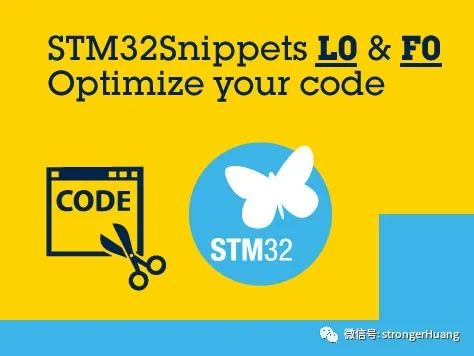
Currently, the official STM32Snippets only provides: example code packages for STM32F0 and L0.
The provided example code is somewhat similar in style to the Standard Peripheral Library; let’s take a look at the F0 code package:
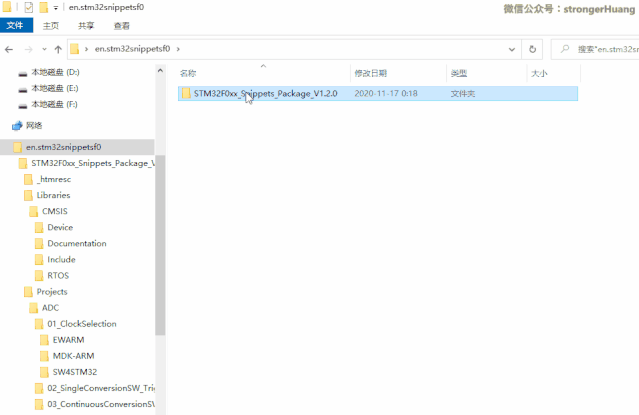
It also provides projects for Keil MDK and IAR EWARM.
2
Standard Peripheral Library
Standard Peripheral Library: abbreviated as SPL, also known as the Standard Peripheral Library.
Friends who have studied STM32 are no strangers to the Standard Peripheral Library, which is a set of C language code for peripherals. (Due to the current official promotion of STM32CubeMX, updates for SPL have been stopped)
The Standard Peripheral Library is a simple encapsulation based on registers, primarily aimed at procedural embedded system developers.
https://www.st.com/en/embedded-software/stm32-standard-peripheral-libraries.html
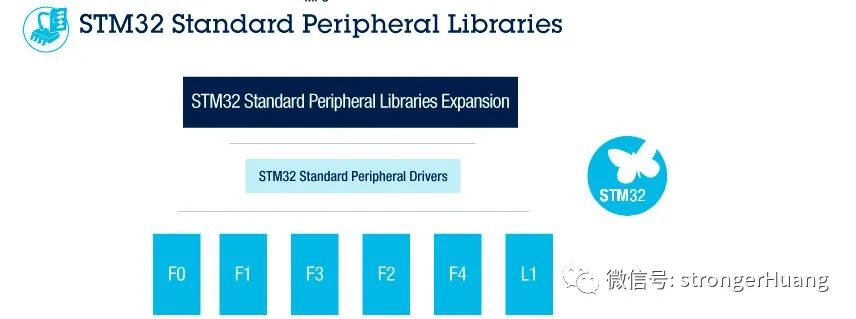
The Standard Peripheral Library supports STM32F0, F1, F2, F3, F4, L1, and does not support F7, H7, MP1, L0, L4, L5, G0, G4 and other series released later.
So, don’t ask anymore: Where to download the L0 standard peripheral library?
LL: Low-Layer, low-level library
HAL: Hardware Abstraction Layer, hardware abstraction layer library
STM32Cube HAL and LL work with the STM32CubeMX tool for STM32 development. This is also the official library currently promoted by ST for STM32 development.
HAL is aimed at developers with a certain embedded foundation; HAL has good portability.
LL library, compared to HAL, has a simpler structure and is aimed at those who previously worked with SPL (Standard Peripheral Library) or register development.
Address:
https://www.st.com/en/development-tools/stm32cubemx.html
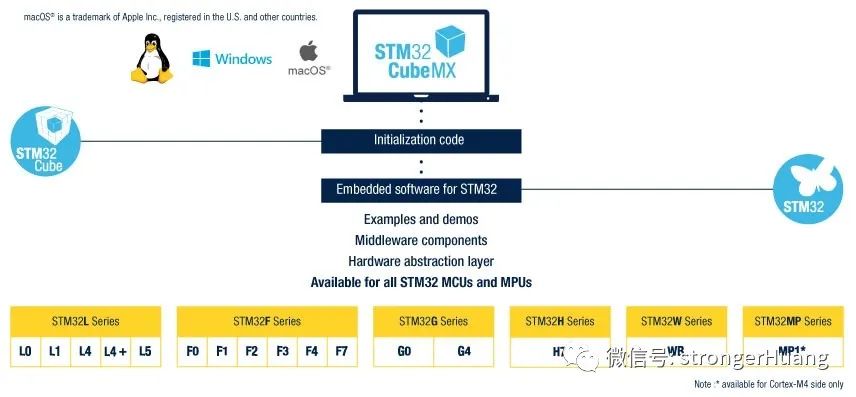
STM32Cube HAL and LL are the libraries currently promoted and maintained by the official, and it is also recommended that everyone learn them. Moreover, the new models (such as L5, G4 series) do not have the Standard Peripheral Library, only STM32Cube HAL and LL libraries.
4
Comparison of the Four Libraries
Comparison information from the official, including portability, optimization, difficulty level, etc.

Among them:
Portability: Portability
Optimization : Optimization
Easy: Difficulty level
Hardware coverage: Hardware coverage
Positioning:
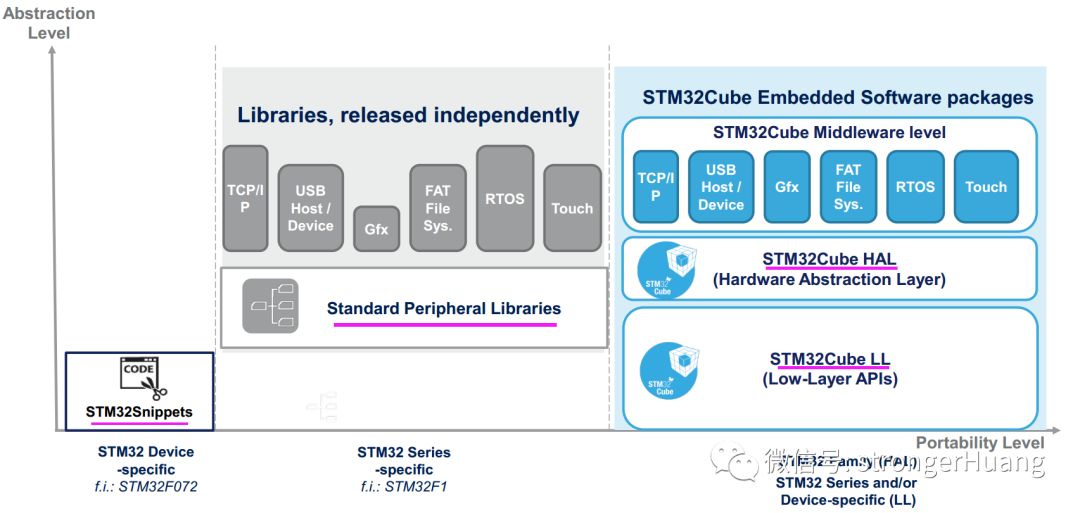
Supported devices:
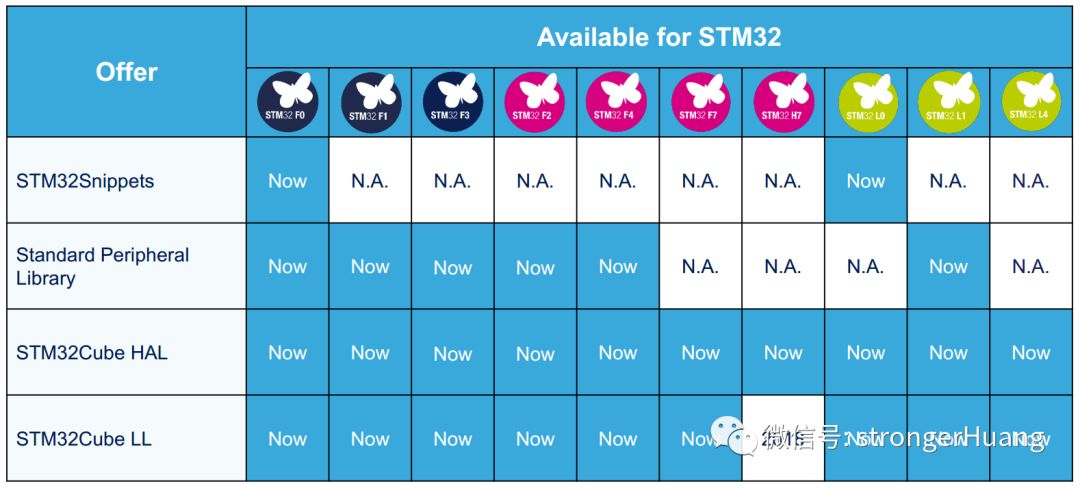
Recently, STM32Cube MP1 has been added, which is not counted by the official.
Transfer between libraries:
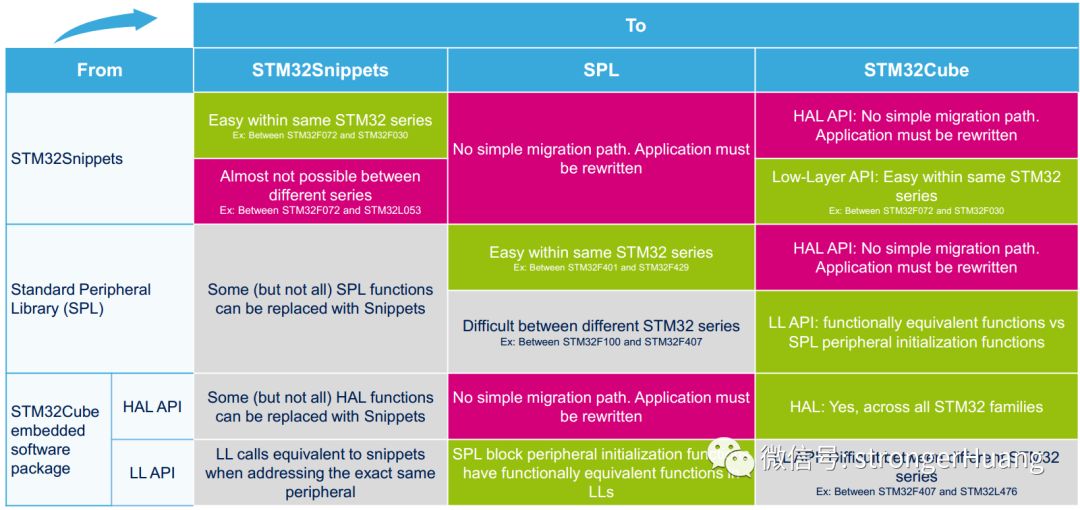
This article ends here, I hope the above content is helpful to you!
———— END ————
Reply in the backend 『STM32』 to read more related articles.
Follow WeChat public account『Embedded Column』, check the bottom menu for more content, reply “Join Group” to join the technical exchange group according to the rules.

Click “Read the original text” to see more shares, welcome to share, collect, like, and look.









